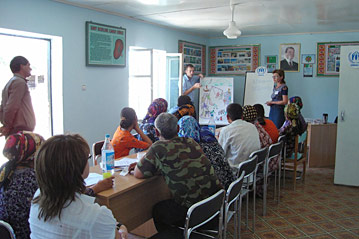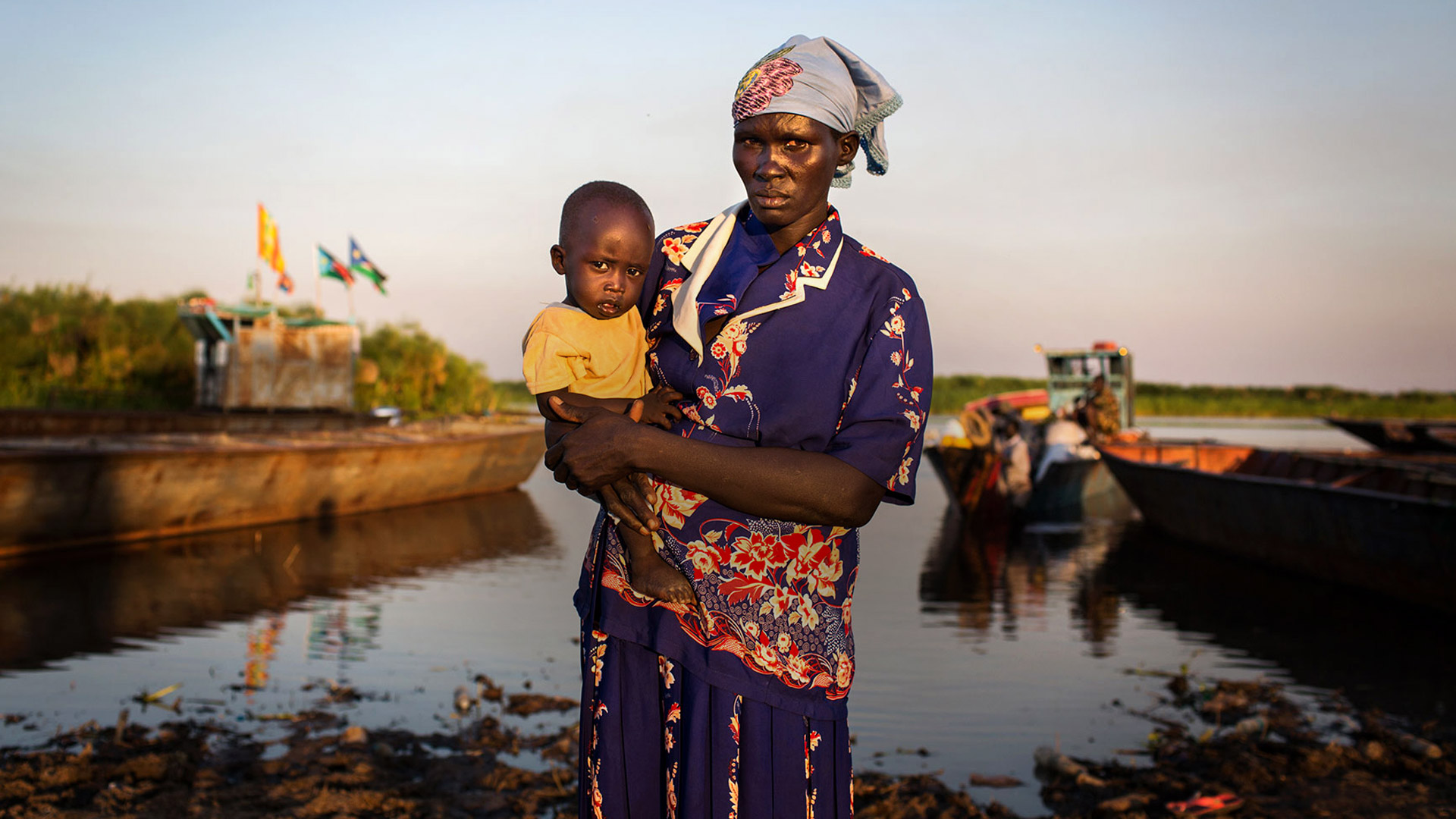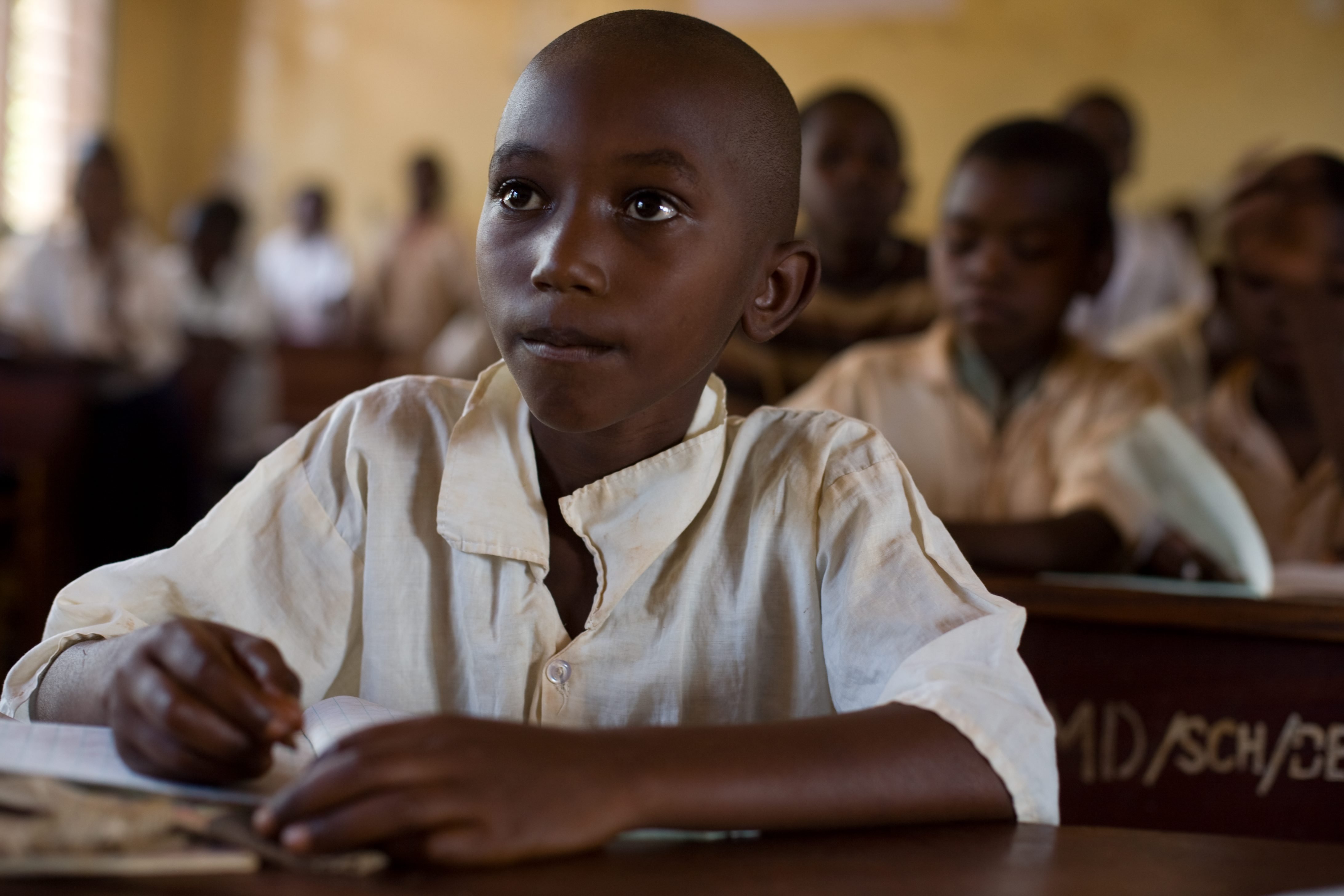Investing in local integration in Turkmenistan
Investing in local integration in Turkmenistan

ASHGABAT, Turkmenistan, October 18 (UNHCR) - In a boost for local integration in Turkmenistan, tens of thousands of refugees and their neighbours are benefiting from efforts to invest in refugee-hosting areas across the country.
More than 40,000 Afghan refugees and Tajik former refugees - now naturalized citizens of Turkmenistan - in 25 settlements across Turkmenistan could benefit from a US$1.2 million project titled "Improvement of the quality of reproductive health and social services for refugees and host communities."
Funded by the Japanese government-supported UN Trust Fund for Human Security (UNTFHS), the three-year project is being implemented in Ahal, Mary and Lebap provinces by UNHCR and the UN Population Fund (UNFPA).
"Turkmenistan has been a generous host to refugees for many years now, and we feel it's time to give something back," said Annika Linden, UNHCR's representative in the capital, Ashgabat. "Local communities have shared their land and resources with refugees, who are contributing back to society. The international community also has an important role to play to make this coexistence sustainable."
More than 11,000 refugees from Tajikistan have been granted citizenship and residence permits under presidential decrees of August 2005. The majority of them are ethnic Turkmen. Another 709 Afghan refugees have received permanent residence permits under an earlier decree.
Many of them live in remote settlements across vast stretches of arid land. Under the UNTFHS project, roads are being built or rehabilitated to improve access to schools and medical aid posts in the settlements.
One medical aid post has been completed to provide better health care to the community, while nine more will be developed by the time the project ends in 2009. Safe water will also be made available at these facilities by installing water pumps, building reservoirs and upgrading existing water systems.
While these settlements are increasingly self-sufficient, their remote locations often mean there are limited jobs besides growing cotton and wheat. In response, the Japanese-funded initiative has started vocational training in areas such as tailoring, welding, tractor operation, computer skills and electrical work. To date, more than 100 students have graduated from these courses with certificates recognized throughout Turkmenistan.
"I am very grateful to the UN for the opportunity to acquire professional skills," said Rustamova Guljahan, who graduated from the tailoring/cutting course in Egri-Yagyr settlement, Hojambaz district in Lebap province. "I learnt a new specialty and I hope to be able to use the skills now."
The income generation project does not stop there. In Mary province, a facility completed last month is equipped with sewing machines, ironing tables and tools for tailors and cutters like Guljahan. Seven more workshops are being built in Lebap province to provide space and equipment for graduates from other courses.
In addition to infrastructure and job development, the project also seeks to raise awareness of human rights and about how to prevent sexual and gender-based violence and HIV/AIDS. Eight training sessions have so far been conducted with the communities and local government officials who work with them.
These developments are welcomed by the communities. For them, there's no turning back. "Now it's easier for us to live here," said Faizula Yakuhov, a refugee-turned-citizen in Taze Durmush, one of the settlements covered by the project in Lebap. "[With Turkmen citizenship] we have the right to take part in elections like all citizens. Our children have the right to service in the army. They also have a chance to enter higher institutes of education."
Gurban Nazar, an ex-refugee now working as a doctor in Babadurmaz settlement, Ahal province, added, "Even in Tajikistan, we lived as Turkmen, with our own habits. When war broke out, we decided to come here to our historical motherland. I have my own house here. After my sons finish the army, they will go to university. All our future is here."
The UNTFHS was set up in 1999 at the initiative of the Japanese government. Total contributions have reached US$280 million and the Fund has supported more than 160 projects by UN agencies from the perspective of human security.
Local integration is one of three durable solutions sought by UNHCR for refugees, the other two being voluntary repatriation and resettlement to a third country. Besides Turkmenistan, other countries that have naturalized refugees include Kyrgyzstan, India and Mexico.
By Marat Atamouradov in Ashgabat, Turkmenistan
and Vivian Tan in Islamabad, Pakistan








